Summary
- Hilton Garden Inn: Ultimate Team Play focuses on teamwork in managing hotel operations.
- Hotel Magnate offers flexibility in designing hotels based on guest archetypes.
- Motel Manager Simulator simulates realistic, gritty motel management experiences.
Some players want to slay dragons, some want to save galaxies, and then there are those who just want to make sure the towels are folded right and the minibar is stocked. Managing a hotel might not sound like adrenaline-fueled fun, but there’s something oddly satisfying about creating the perfect guest experience, balancing budgets, upgrading rooms, and watching a business bloom floor by floor.
6:38
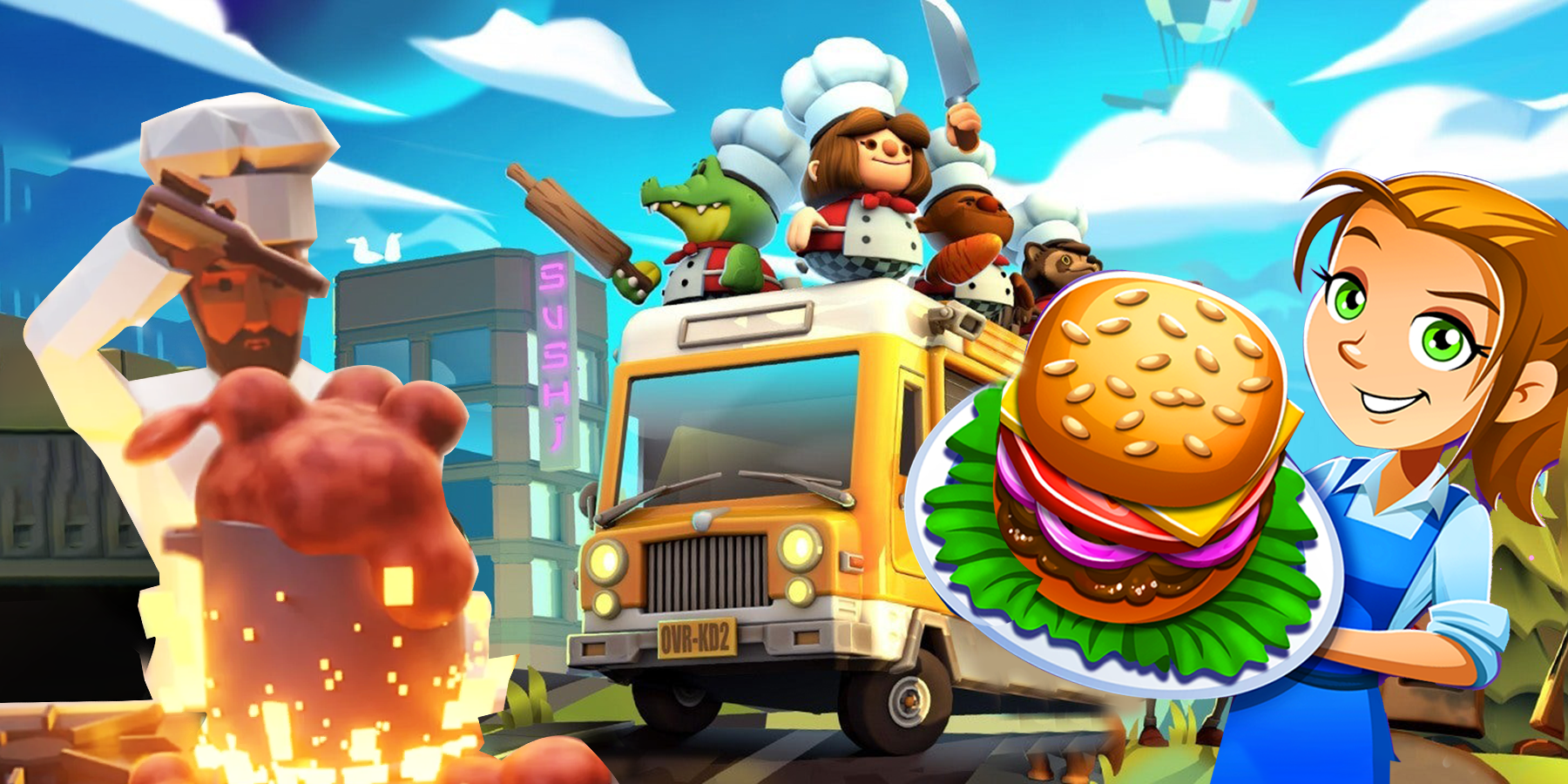
Related
25 Best Games Where You Run A Restaurant
There are a lot of great “simulators” out there that showcase what it’s like to run a restaurant. Here’s a look at some of the best.
These hotel management titles offer a lot more than just furniture placement and concierge duties. Some dive deep into simulation mechanics, others throw in quirky themes, and a few even wrap it all in a heartwarming story.
7
Hilton Garden Inn: Ultimate Team Play
Because Sometimes Your Best Coworker Is an NPC With a Mop
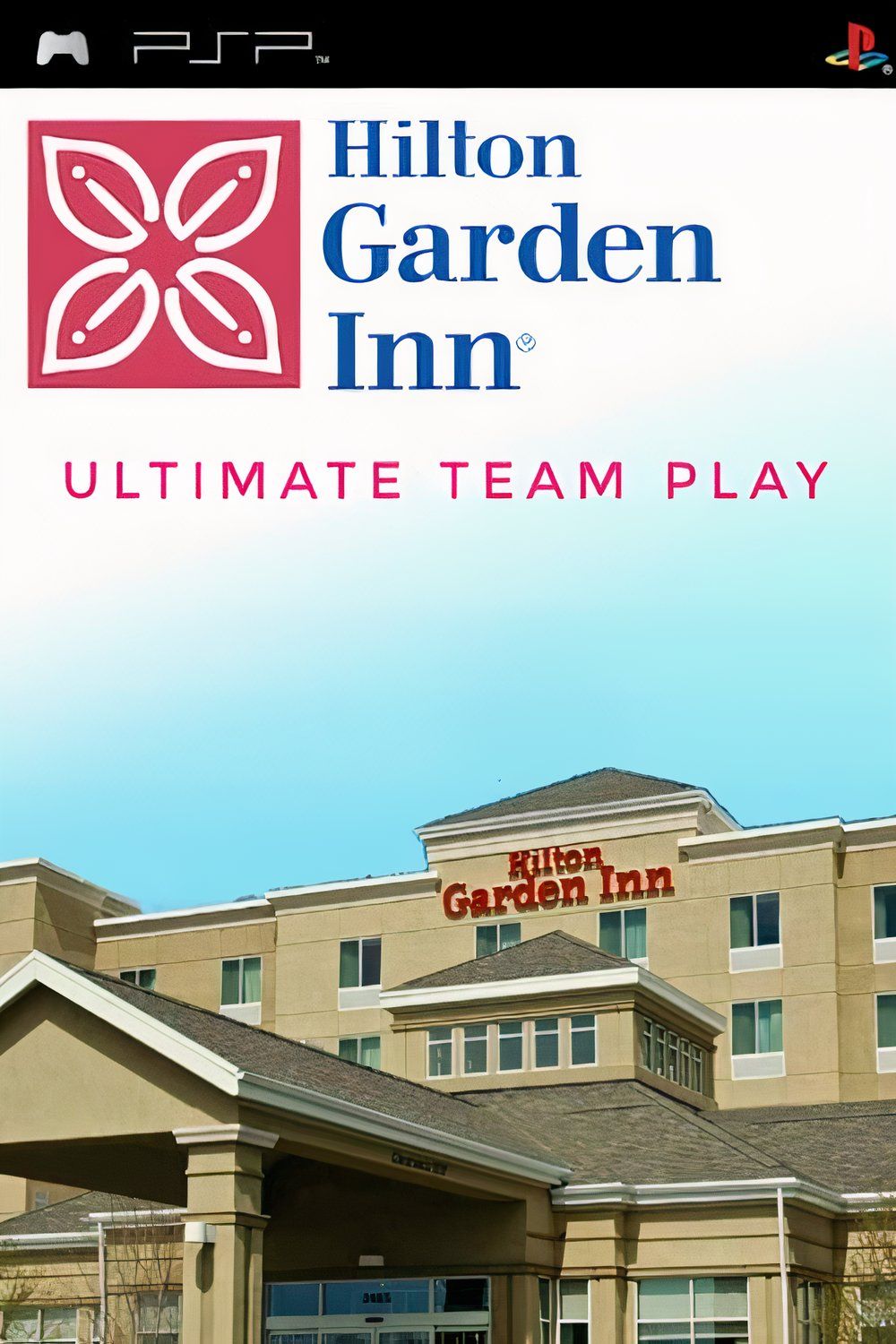
This one might sound like a branded tie-in, and well, it kind of is—but Hilton Garden Inn: Ultimate Team Play surprised a lot of people by being more than just corporate fluff. Built around a co-op simulation structure, it leans heavily into teamwork and task juggling. Players manage day-to-day hotel operations like check-ins, housekeeping schedules, kitchen prep, and maintenance, but what makes it stand out is how everything is designed to promote coordination between staff members.
There’s even a time-management challenge layer baked into it. Guests come in with different expectations—some just want a clean bed, and others demand early breakfasts, personalized pillows, and lightning-fast Wi-Fi. So the gameplay becomes a constant shuffle between prioritizing tasks and making sure the whole team isn’t falling apart under pressure. Surprisingly, the AI coworkers are smart enough to not burn the omelets every two minutes, and there’s a leaderboard system that tracks service efficiency across shifts.
6
Hotel Life: A Resort Simulator
That Pool Isn’t Going to Clean Itself
Hotel Life: A Resort Simulator focuses less on budget spreadsheets and more on the hands-on feel of running a full-fledged resort. This isn’t about just sitting behind a desk watching graphs spike—it’s about building villas by hand, decorating suites, planning yoga classes at sunrise, and serving cocktails by the beach before sunset.
Players start with an empty patch of land and gradually expand it into a resort that attracts tourists from all over. What makes it feel grounded is the attention to detail. Players fix broken plumbing, harvest garden produce for the kitchen, and physically walk through the hotel interacting with staff and guests.
There’s a light progression system tied to guest satisfaction, so every design choice, menu change, or event hosted directly impacts ratings and income. And while it doesn’t dive too deep into financial micromanagement, it’s got just enough mechanics to keep players thinking ahead while still letting them bask in tropical vibes.
5
Hotel Giant 2
When Guest Satisfaction Was Just a Spreadsheet Away
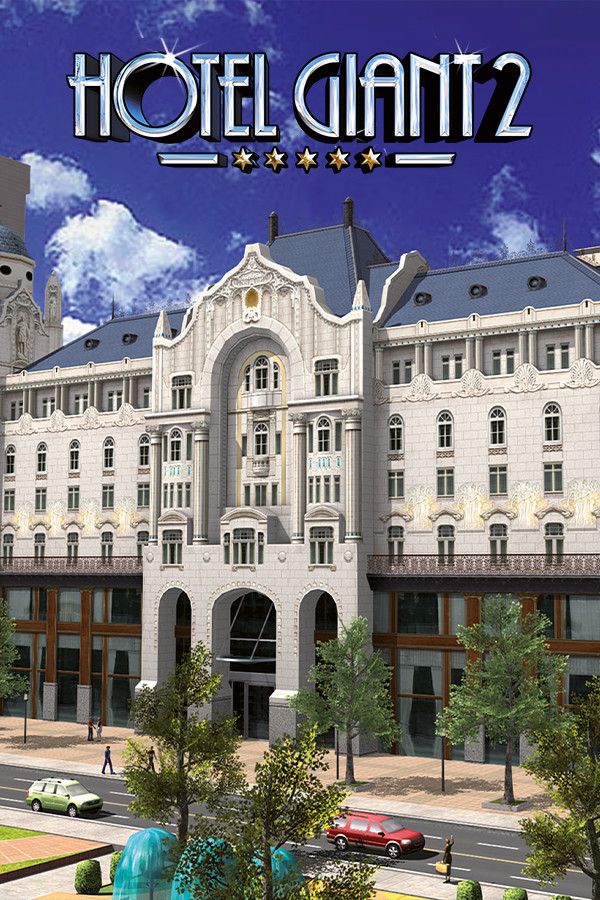
Released in the late 2000s, Hotel Giant 2 feels like a time capsule of management sims from an era when simulation games leaned hard into statistics and tile placement. But underneath the dated UI and clunky controls is a hotel simulator that was surprisingly granular for its time.
This one is all about layout optimization, guest behavior tracking, and maximizing room revenue through subtle tweaks. Every room has to be placed with purpose—if the conference center is too far from the elevator, business guests complain. If the bar’s next to the pool instead of the restaurant, foot traffic shifts, affecting sales metrics. It’s not flashy, but it’s smart.
The most interesting part is how much data players can dive into. Guest satisfaction charts break down everything from mattress quality to hallway noise levels. Even elevator congestion becomes a design consideration. It rewards players who obsess over flow efficiency and get satisfaction from shaving five seconds off a guest’s trip from the lobby to their suite.
4
Hotel Magnate
Build It, Staff It, Stress About It
Hotel Magnate is one of the more recent entries in the genre and it takes a modern approach to simulation while keeping the spirit of classic tycoon games alive. Think of it as the middle ground between Two Point Hospital and RollerCoaster Tycoon but with bedsheets instead of rollercoasters.
Players have full control over architectural design, room customization, and staff management, but where Hotel Magnate really shines is in how it handles guest archetypes. Each visitor type—business travelers, party-goers, families, influencers—comes with specific needs and behavior patterns. That means designing a hotel isn’t just about filling space, it’s about tailoring it to the clientele. A gym next to the luxury suites might please some guests but annoy others, and that kind of planning keeps the game interesting even hours in.
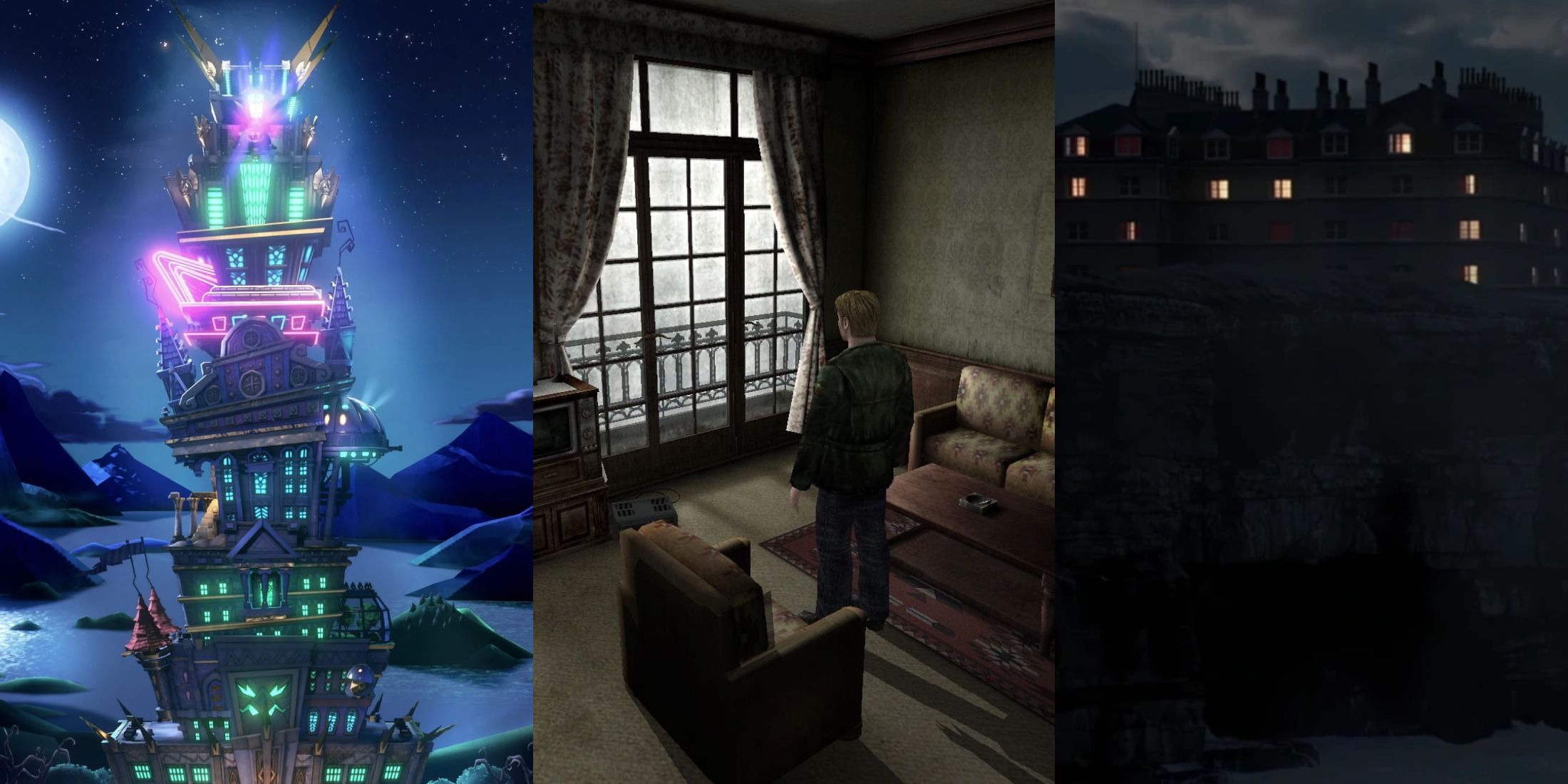
Related
Best Hotels In Horror Games, Ranked
You can check out, but you can never leave… these are the greatest hotels in horror, ranked from worst to best.
There’s also a PR and marketing layer that allows players to promote the hotel to different demographics, turning it into a boutique retreat, a business hub, or even a budget motel depending on strategy. It’s smart, it’s flexible, and it doesn’t force players into a single formula.
3
Hot Springs Story
Zen Meets Revenue
Leave it to Kairosoft to take hotel management and wrap it in pixel art, quirky humor, and oddly compelling gameplay loops. Hot Springs Story turns players into the owner of a traditional Japanese inn, and the goal isn’t just to make money—it’s to build a space that makes guests feel at home.
Rooms aren’t just rooms here. Players design bathing areas, gardens, restaurants, and guest amenities, all of which have synergy bonuses based on placement and decor. A koi pond near a bamboo path boosts aesthetics, while certain room combinations unlock special events and higher-tier clientele.
What makes it click is the simplicity hiding a surprisingly deep optimization system. Different guest types have their own preferences, so layouts matter more than they initially seem. There’s also a light RPG element to staff management, where upgrading employees improves service quality and customer satisfaction.
5:23

Related
28 Best Video Games Set In Japan, Ranked
Apart from offering fascinating gameplay, these exciting video games allow players to experience the Japanese culture and way of life.
It’s not as graph-heavy as more traditional simulators, but it delivers a strong feedback loop that keeps players invested. And the fact that it runs on mobile without cutting corners makes it one of the most accessible entries in this list.
2
Motel Manager Simulator
It Ain’t Fancy, But It Pays the Bills
Not every hospitality story has to start in a five-star resort. Motel Manager Simulator drops players into the deep end of running a roadside motel where the carpets are questionable, the walls are thin, and the clientele is a mixed bag of truckers, budget travelers, and the occasional shady character.
It’s gritty by design, and that’s what gives it character. Players patch up broken fixtures, chase off loiterers, deal with surprise inspections, and manage supply chains that are constantly one step from falling apart.
The appeal lies in the hustle. Unlike polished resort sims, this one leans into the rough edges. Rooms can be upgraded, but it takes time and smart budgeting. There’s a dynamic pricing system that rewards high occupancy but penalizes poor maintenance, and guest reviews can swing wildly depending on how well players manage chaos on a shoestring budget.
There’s also a surprisingly detailed staff system, including hiring security, housekeepers, and even questionable “freelancers” for side gigs that blur the lines of legality. It’s rough, weirdly funny, and surprisingly realistic in its portrayal of the less glamorous side of hospitality.
1
Bear and Breakfast
This Is a Business, Not a Woodland Charity

Bear and Breakfast is what happens when a cozy storybook meets a hotel management sim. Players take on the role of Hank, a bear who decides to renovate old cabins into guest lodges for human tourists. And despite the adorable premise, there’s a surprising amount of depth tucked beneath the fur.
Each property starts as a rundown shack, and players build it up room by room—decorating, expanding, assigning staff (who are, naturally, also animals), and attracting visitors. What makes it interesting is how story progression is woven directly into the management loop. Certain upgrades unlock quests while meeting guest expectations ties into character arcs.
There’s also a strong emphasis on atmosphere. Room aesthetics, lighting, decor themes—all of it affect guest satisfaction. Characters like Sabine, Anni, and Took are full of personality and regularly get involved in the hotel business in ways that actually influence gameplay mechanics.
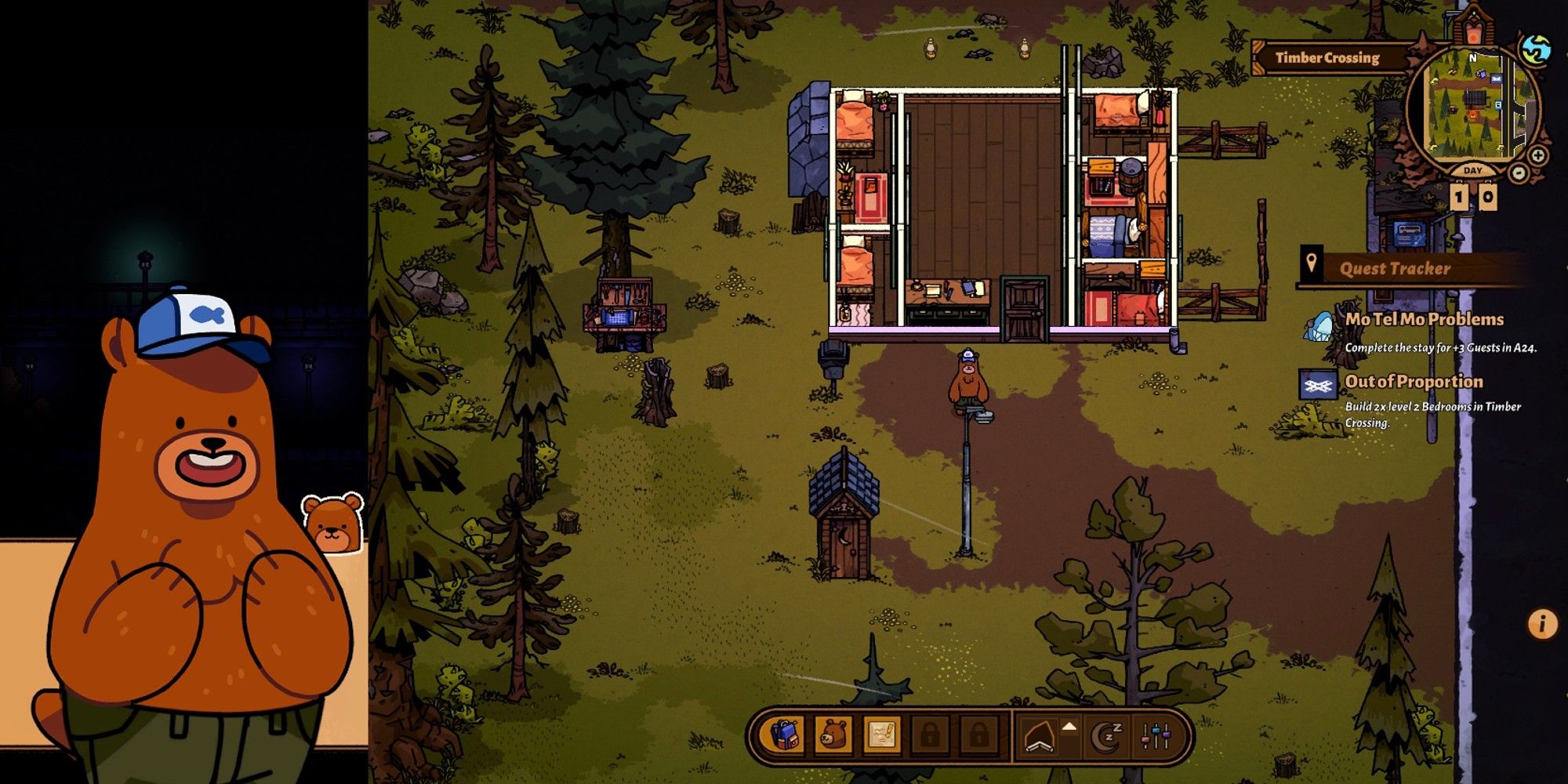
More
5 Beginner Tips For Bear And Breakfast
Bear and Breakfast is a fun way to pass the time, although new players may need a little help getting started. These tips are here to help!
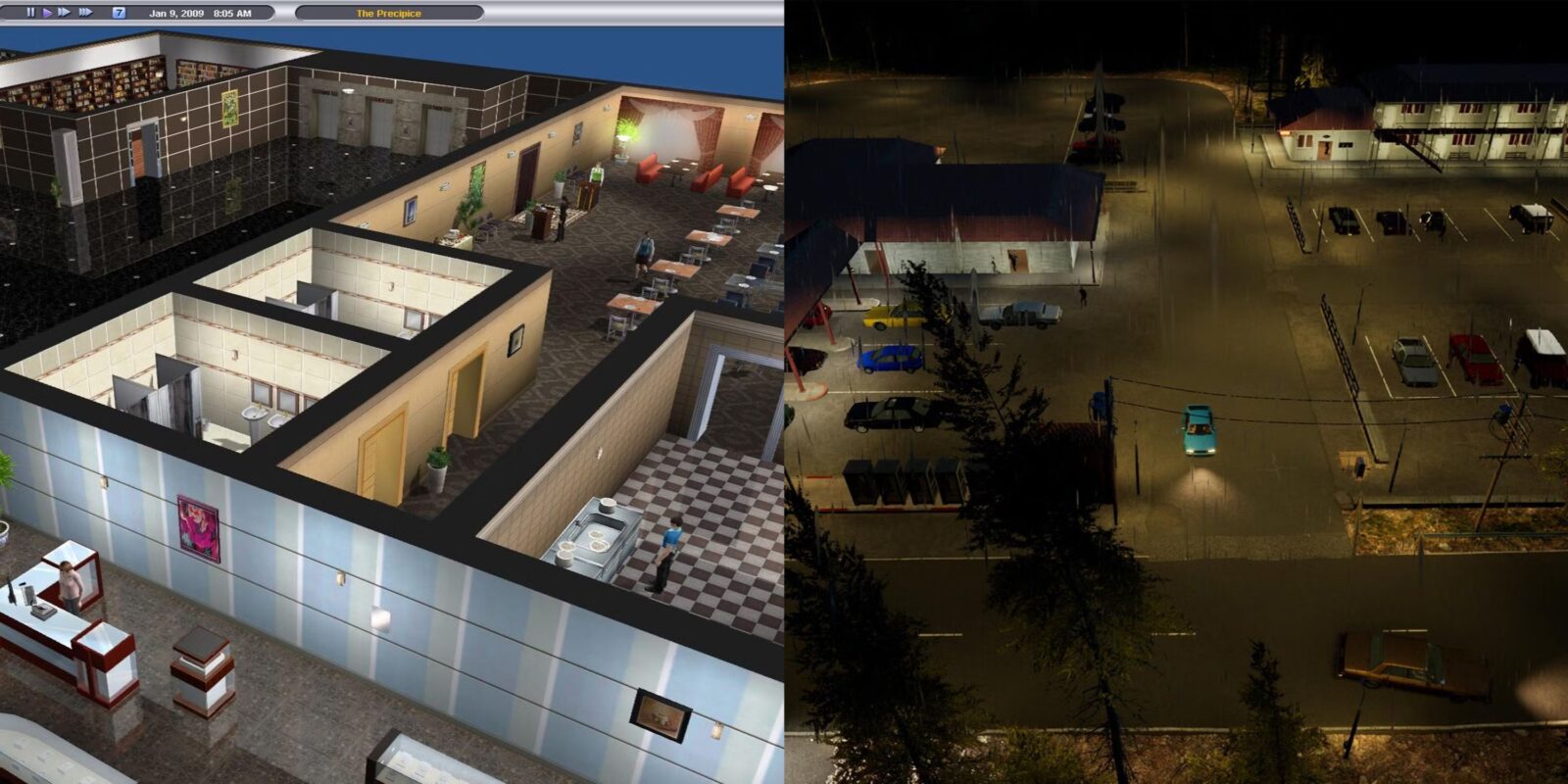



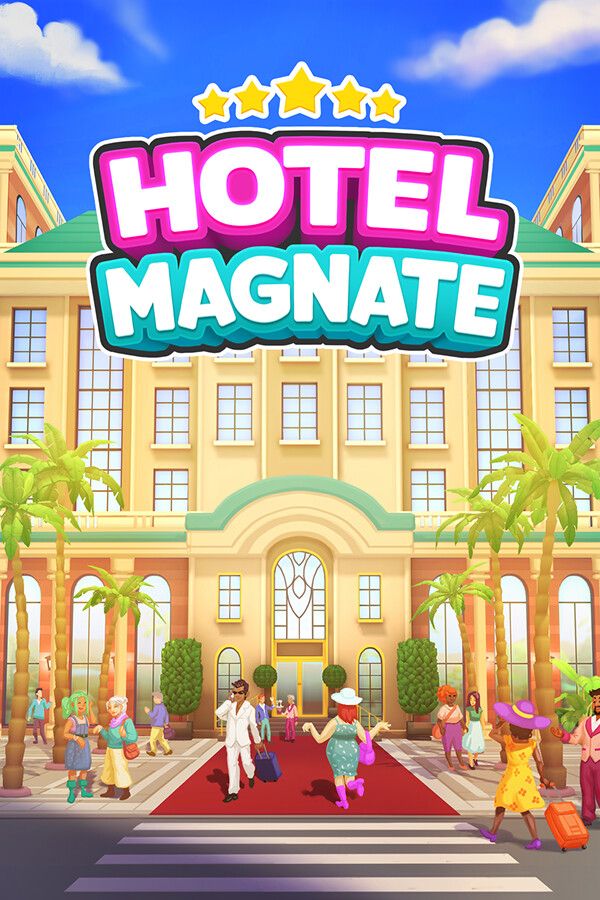
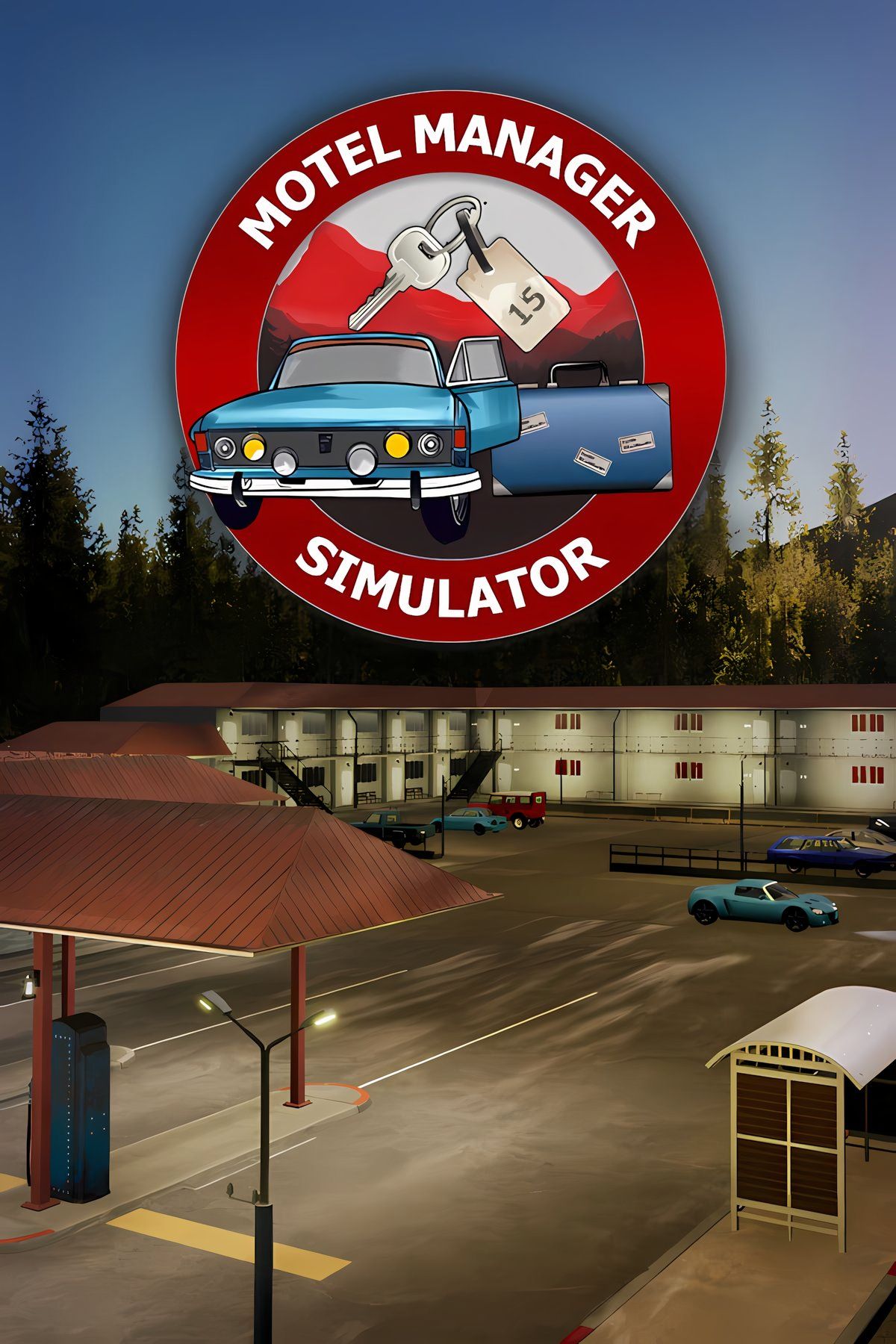
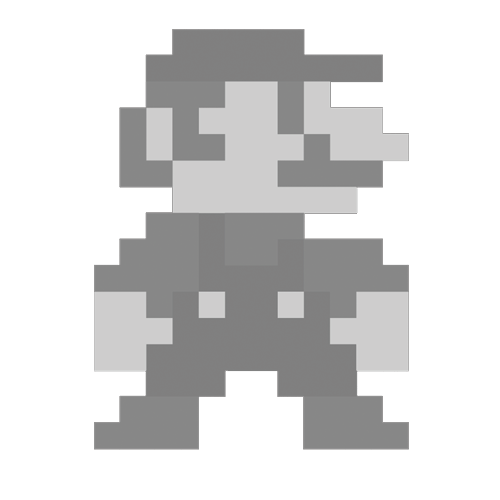










Leave a Reply